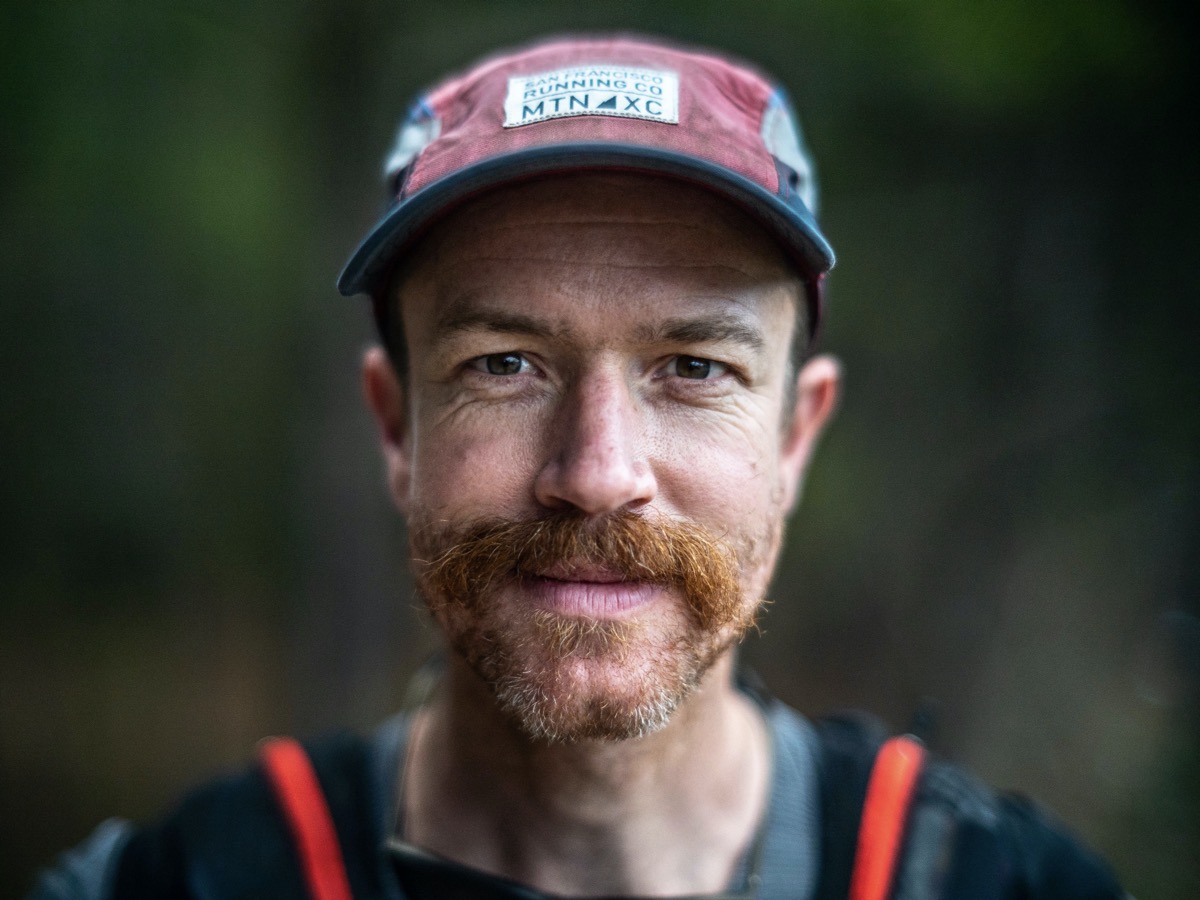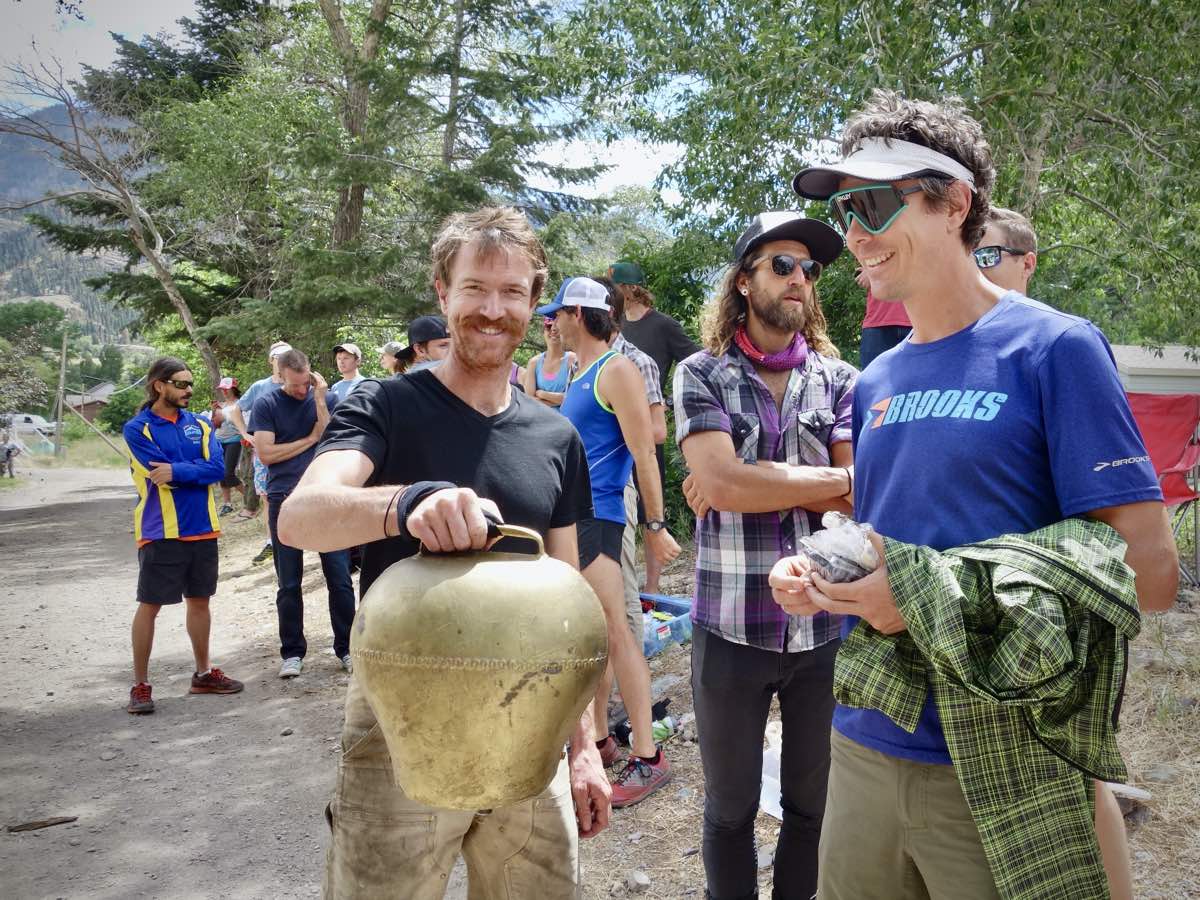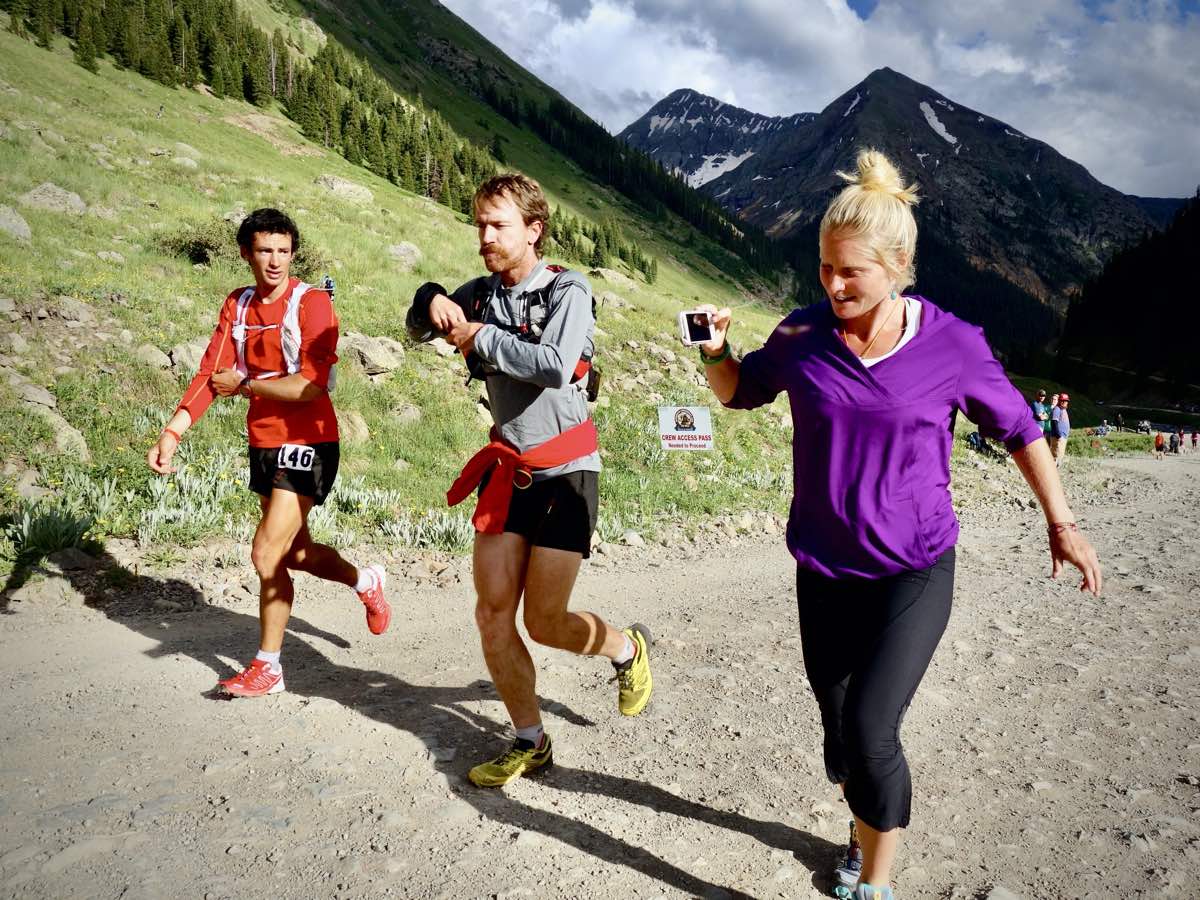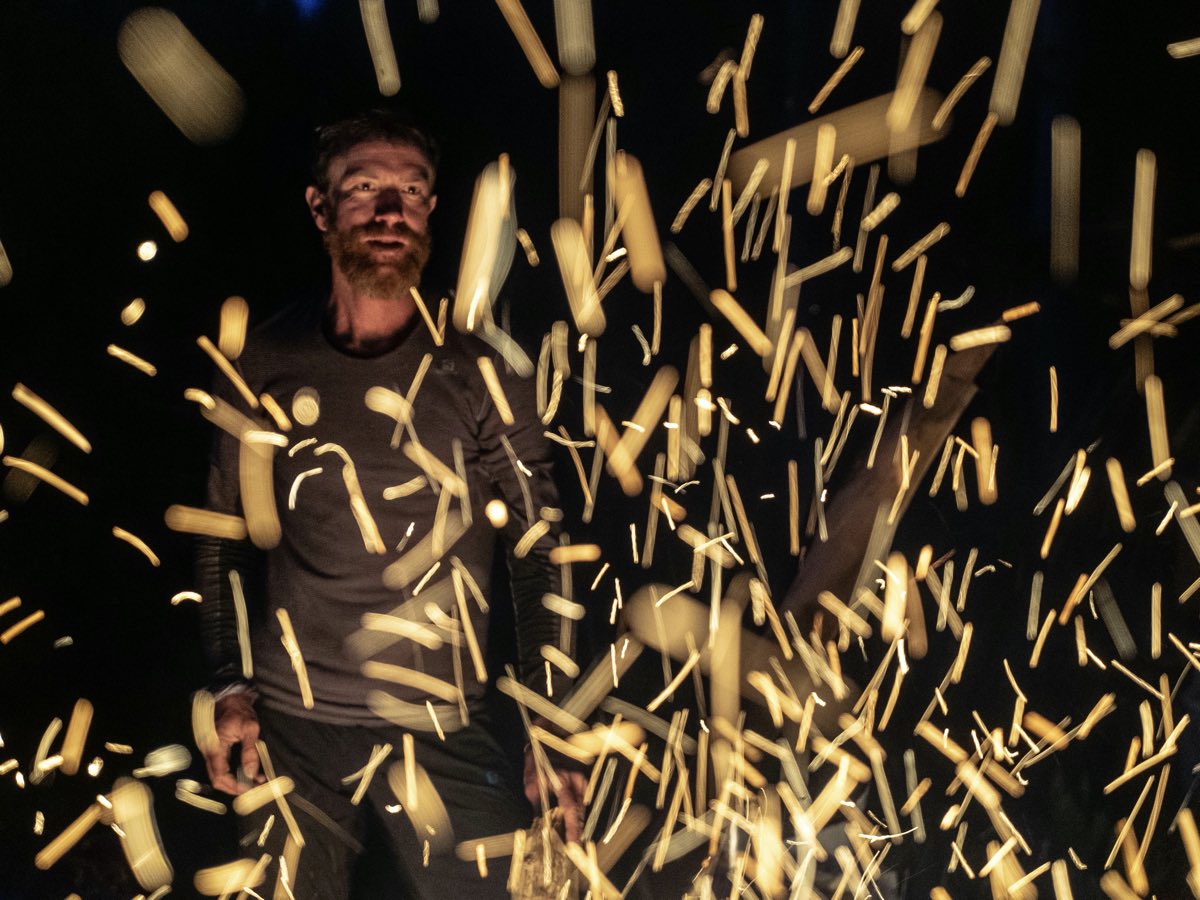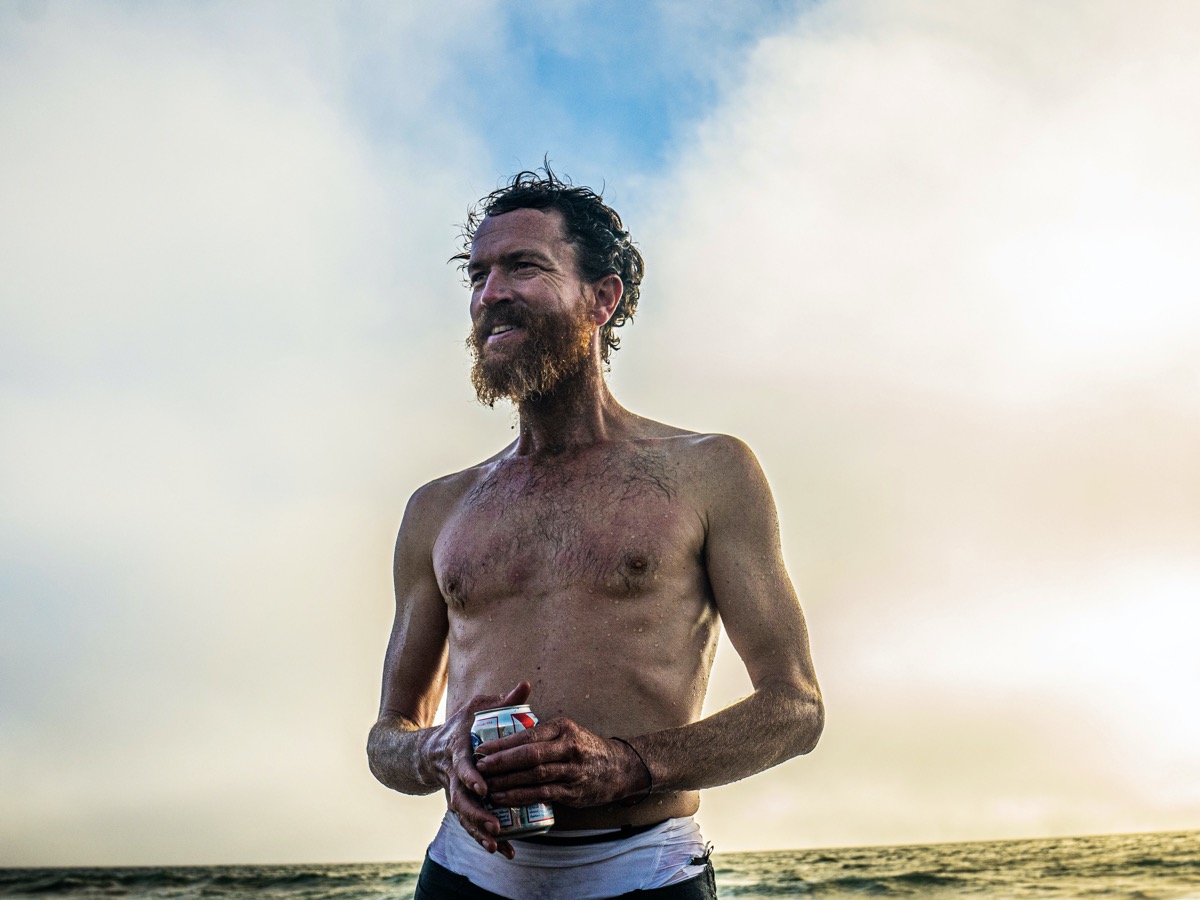“People are really angry. People are really frickin’ angry, me included,” Rickey Gates says. Gates ran across the U.S. in 2017, looking to explore a divided country following the 2016 U.S. presidential election. We talked as protests over George Floyd‘s death gripped the country. Gates wants to see change, and is understanding about the process. “All of these things take time and effort. It’s an evolution, and things need to happen in order for us to really reconcile all that’s gone on.”
Cross Country: A 3,700-Mile Run to Explore Unseen America, his book about that 3,700-mile run from South Carolina to California, has been out for two months now. What was to be a six-city book tour is off, at least until the fall, but nevertheless, “it’s doing well, to my knowledge. It was #1 on a few Amazon subcategories for about six weeks,” Gates professed. “It’s about running, America, and myself.” The hardcover book is on the desk in front of me, but I admit I haven’t yet fully read it and Gates reveals some of his surprises. “I had not too many expectations [beforehand], but across the South, I was blown away by the kindness.” Folks opened up, and Gates acknowledged his unique opportunity to connect. “It was a great platform to talk to people. I can’t walk down the street [where I live] in Santa Fe[, New Mexico] and ask 10 strangers for a portrait. But a backpack, hiking poles, and a two-month-old beard, people were curious.”
Gates was a sociology and photography major at the University of Colorado, and the coffee table-style book is a natural outpost of that intersection. “I’ve been taking photos since high school. I was in the dark room in high school, but people, portraits had never been my strong suit. The human element always baffled me,” he said of his background. I gush at Ted Conover‘s Rolling Nowhere, even wishing that Gates would take up such a railroad adventure, and Gates is further ahead. Conover was an inspiration, and Gates has read more of his works than me.
He intended to create a book from his adventure and documented it toward that goal, using Instagram on the way. “A lot of times [after talking to someone], I’d run a half a mile up the road and just sit down and start typing. That made it very real and fresh.” He’s shared copies with some of the people he met on the way, and “everyone’s happy with how it turned out. Probably my mom was most questioning.”
“Couple of places,” Gates says, of plans to revisit destinations from that run. “The Ozarks. I couldn’t have told you where the Ozarks were before the trip. It’s an amazing place. A tangle of trees, mountains, and really interesting, kind people. Very old school.” I’m almost embarrassed to bring it up for its potential to stereotype, but I do anyway. “There’s this show on Netflix,” I start. Gates sees where I’m going and cuts me off. “Seen all of them.” There are three seasons of Ozark on Netflix.
He picked up stand-up paddleboarding for part of the trip too and wants to again get back on the river. “Still, or still-ish water,” he says of his limitations. “It’s a challenge in a lot of places in the U.S. to feel a sense of wild, but it’s there on water.”
The run is being made into a movie too, called TransAmericana. The 75-minute feature is completed, but its distribution timing and method is presently uncertain, due to the COVID-19 pandemic.
You might think that a book, and a movie, is a lifetime achievement, but Gates is full of projects, both recently completed and those immediately ahead. He popularly ran “Every Single Street” of his previous home of San Francisco in 2018, and then did the same thing in Santa Fe, in 2019. His wife is an artist at Meow Wolf in Santa Fe, and they’ve been married for just less than a year.
“I love it,” he says of Santa Fe. “Great trails, great skiing, trails are less crowded. It’s an amazing state, I’m so happy to be here right now.” He talks about a recent trip to the 3.3-million-acre Gila Wilderness.
The eighth running of Gates’s “Hut Run Hut” week-long migration across the Colorado Rockies is still expected to happen this year, once in August and once in September. 2019’s “Run Bus Run” across the West won’t repeat, but instead there was a 2020 version on the calendar for Alaska. That however has been postponed until 2021.
“His eyes got bigger and bigger. That’s ambitious, even of us,” Gates recalled of his first conversation with the Green Tortoise bus company that partners on the project, shuttling runners to amazing trailheads in quick succession. The bus company frequently covers as much distance as Gates’s project did in 2019, just not as fast. When Gates proposed the Alaska trip, they were immediately on board too.
“The Kenai Peninsula is just so rich,” he says in anticipation of the 2021 Alaska trip. “It’s funny, because it’s the most accessible. You need some level of accessibility for trail runners though. Alaska’s just so vast.” He’s been going there every year for the last seven years. He calls out the Lost Lake, Mount Marathon, and Crow Pass trails as highlights, but admits it goes on and on. “Getting [the runners’] reactions, that’s what I’m looking forward to the most,” he says.
While the 2020 Alaska installment was postponed, about half of the runners immediately signed on for 2021, and Gates said that most of them were on the 2019 trip too, and that feels good. “It’s exciting pulling together a trip like this. It’s just so massive with logistics. If you’d have told me before I’d have fun doing logistics, I wouldn’t have believed it.”
And then Gates is working on a “50 Classic Trails” pet project too. “It’s a bucket list of North American trails, I guess by my own parameters. But one-day trails, that piece together a board image of nature. I’ve been working on it the past year and have a couple more years.” He anticipates a book, movie, and website from the collective adventure. “I like putting out a challenge to people,” and he points to Colorado’s Four-Pass Loop and Washington’s Wonderland Trail as two trail challenges, but with varying time limitations. Gates anticipates a patch or buckle, something to highlight one’s accomplishment, and says that this is an extension of his earlier fastest known time belt-buckle project.
I call out the breadth of his projects, and he simply says, “got to stay busy.” He certainly does, but he starts his day at 5:00 a.m. with a 30-minute meditation. I know meditation is growing in popularity, but I lack much understanding of it and Gates politely explains. He’s been doing it for about four years, and says that his practice has become greatly refined since moving to Santa Fe. He followed his younger sister’s lead into meditation, and when living in Madison, Wisconsin, completed a 10-day Vipassana retreat. I’m surprised. The 10 days of silence seems so out of reach to me, and I know little about it.
“It turned into one of the most incredible experiences of my life,” Gates reveals. “I think about [meditation] as a possible alternative to running, in the future, if my body can’t handle it anymore.” I still express ignorance about one’s ability to complete such a 10-day feat and Gates simplifies it. “All runners, I think, are more in tune to meditation than we think we are. Think about a long race and trying to do well. Your mind’s not wandering to your taxes, or your ex-girlfriend. Before this I didn’t even know the definition of mindfulness, but it’s about being present in your body and the moment.” Gates realizes that his running background isn’t the only lead-in to meditation too. “Motorcycle riding is like forced meditation,” he says. Gates is known for long-haul trips and says that when riding into South America, he knew that a tank of gas would stretch for 120 miles. “Often times I’d do [120 miles] without stopping, two-and-a-half hours. Very, very similar [to meditation],” he said of that dedicated focus.
We talk about the risk of motorcycles and he shrugs it off. “I don’t think about it too much. I pick and choose what kind of riding I do. There are certain risks I’m open to, like riding.”
All of his projects include running, but we haven’t really talked about Gates’s running itself. I ask the basic question before we wrap up. “I’ve been running for 25 years and I’m by no means sick of it, but I know there’s only so many lifetime miles in my legs.” He’s a longtime mountain biker too and has frequently been using that to explore Santa Fe while stepping back–in volume, not speed–some from running. “I can crank three days a week pretty hard [when running],” he says, thanks to his history.
Call for Comments
Running, racing, adventuring, seeing him on his cross-country run, reading his book, or participating in one of his organized trips, leave a comment to share a story about Rickey Gates!
